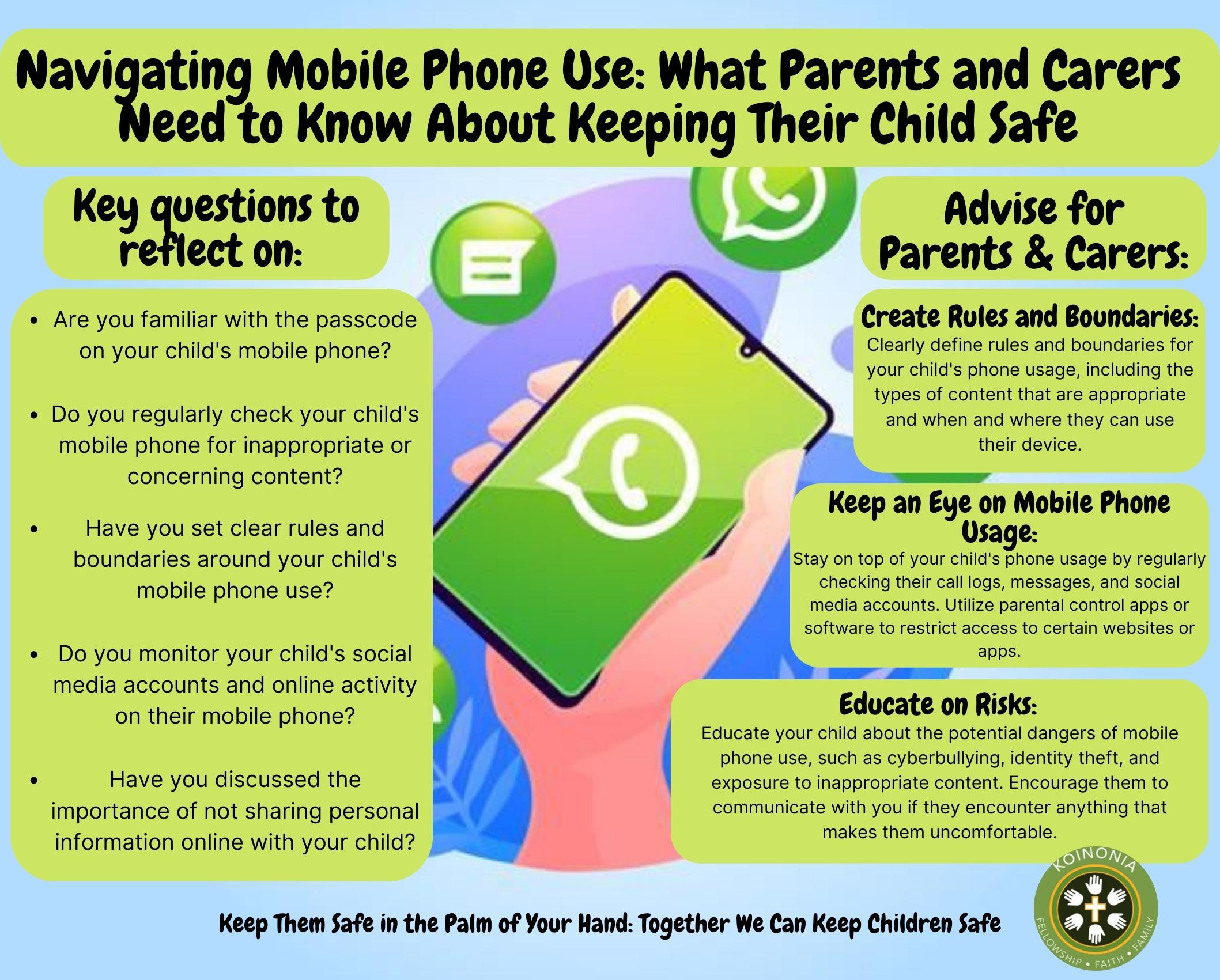SAFEGUARDING
The Koinonia Federation recognises our moral and statutory responsibility to safeguard and promote the welfare of all pupils. We endeavour to provide a safe and welcoming environment where children are respected and valued. We are alert to the signs of abuse and follow our procedures to ensure that children receive effective support, protection and justice.
We have a range of policies in place and available on our website and in school that are designed to achieve a fair, safe and harmonious environment. Policies provide guidance on the acceptable standards of behaviour expected of all staff, governors, children and adult visitors to our school.
The Koinonia Federation adheres the definition of safeguarding used in the Children Act 2004 and in the Department for Education and Skills (now DfE) guidance documents Working together to Safeguard Children and Keeping Children Safe in Education, to promote children’s and our school communities’ welfare.
This can be summarised as:
- Protecting children from maltreatment
- Preventing impairment of children’s health or development
- Ensuring that children growing up with safe and effective care
- Undertaking that role to ensure children have optimum life chances
Our governing body supports the school by complying with the Education Act 2002 (section 175) and we keep up to date with guidance issued by the Secretary of State and the Local Authority.
We follow Education Department and local authority guidance on safeguarding children and safer recruitment to ensure we provide a safe environment and take action to identify and protect any children or members of our learning community who may be at risk of significant harm.
Through self-review and monitoring we promote safe practice and ensure that adults working with children receive the necessary training for their roles. We work in partnership with other agencies providing services for children and their families to promote their well-being.
LAC LEADS
Primary - Miss J Hoon, Mr E Ermellino & Mrs M Amao
Secondary - Mr I. Benson
DESIGNATED SENIOR LEADERS FOR CHILD PROTECTION FOR THE FEDERATION
Mrs Claire Harrison & Mrs Victoria Wainwright
DESIGNATED SAFEGUARDING LEADS
| St Mary Magdalene Woolwich | Mrs Badesha |
| St Mary Magdalene Peninsula Primary Phase | Mrs Ajayi |
|
St Mary Magdalene Peninsula Secondary Phase |
Mr Benson |
| Christ Church |
Mr Ermellino |
DESIGNATED DEPUTY SAFEGUARDING LEADS
| St Mary Magdalene Woolwich | Miss Thomas |
| St Mary Magdalene Peninsula Phase |
Miss Williams |
|
St Mary Magdalene Secondary Phase |
Mrs Van Der Maas |
| Christ Church |
Miss Lamont |
OTHER DESIGNATED SAFEGUARDING LEADS
| St Mary Magdalene Woolwich | Miss Hoon, Mrs Savva-Brown |
| St Mary Magdalene Peninsula Primary Phase | Miss Hoon, Mrs Savva-Brown |
|
St Mary Magdalene Peninsula Secondary Phase |
Mr Benn, Mr Riley, Ms Brady, Mr Golding, Mr Lawrence & Mr A. Hussain |
| Christ Church | Mrs Gibbs, Miss Reid |
Designated Governor for Child Protection: Pauline Sheath
Named Governor for Child Protection: Pauline Sheath
Named Governor for LAC: Pauline Sheath
VISITOR PROCEDURES
- All visitors must enter the school and sign in at Main Reception.
- All visitors will be issued with an appropriate pass which must be displayed at all times whilst on the site.
- Visitors will be asked to remain under the supervision of a designated member of staff whilst on site.
- Visitors wishing to speak to a particular member of staff should telephone the school to make an appointment, when possible, to avoid disappointment.
- Visitors must not use a smart phone or camera on site.
- Visitors must sign out at the Main Reception and re -turn their visitor pass before leaving the site.
KEEPING YOURSELF SAFE
- Be professional. Be careful how you interact with or speak to a child, the child may interpret it differently
- Avoid physical contact with children unless you are preventing them from immediately harming themselves or others
- Avoid being on your own with a child, always ensure that a door is open and that you are visible to others
- It is best not to do anything for a child that he or she can do for him or herself
- Always tell someone if a child touches you or speaks to you inappropriately. Log down the incident time and date and pass it onto the Headteacher
- If you have concerns about the conduct of staff, it is your responsibility to inform the Headteacher
- If your concern is about the Headteacher, contact the Governor responsible for Safeguarding, who is also the Chair of Governors
WHAT DO I DO IF I AM WORRIED ABOUT A CHILD?
- If you become concerned about:
- Something a child says
- Marks or bruises on a child
- Changes in a child’s behaviour or demeanour
- You must inform the Designated Safeguarding Lead
- If you feel that a child may be at risk of harm but are not sure then inform the Designated Safeguarding Lead immediately who will offer advice and take appropriate action
- Child abuse happens to all children regardless of gender, culture, religion, social background and those with or without a disability
- A copy of the Federation's Safeguarding Policy is located in each campus's school office and on the Federation's website
- Sometimes a child may disclose information to you. If this happens then the following actions must take place.
WHAT DO I DO IF A CHILD DISCLOSES THAT THEY ARE BEING HARMED?
- React calmly
- Listen carefully to the child, particularly what is said spontaneously
- Do not promise confidentiality. Explain to the child that you may need to pass on the information if you are worried about their safety
- You may clarify your concern using “tell, explain, describe or outline” but as soon as your concern is confirmed, ask no further questions as further enquiries may be compromised.
ONLY TRAINED INVESTIGATORS QUESTION A CHILD.
- Reassure the child that they have done the right thing
- Record carefully what the child says in their own words, including how and when the account was given. Date, time and sign the record. Pass this on to the Designated Member of Staff for Safeguarding immediately.
TYPES OF HARM
Everybody has a responsibility to keep all children under the age of 18 safe and this applies to both the home and school environment. Harm is identified in four ways:
- Physical – This is when a child is deliberately hurt or injured
- Sexual – This is when a child is influenced or forced to take part in a sexual activity. This may or may not be a physical activity i.e. being exposed to inappropriate images
- Emotional – This is when a child is made to feel frightened, worthless or unloved. It can be by shouting, using threats or making fun of someone. It can also be when children see their parents, or visitors to the home, fighting or using violence
- Neglect – This is when a child is not being taken care of by their parents. It can be poor hygiene, poor diet, not keeping appointments for additional support, not coming to school or, being left at home alone
- Extremism and Radicalisation – The holding of extreme political or religious views
STAFF CONDUCT
If you are concerned about the conduct of a member of staff following an observation or disclosure, the following actions must be taken:
- Immediately inform the Designated Senior Leaders or one of the Deputy Designated Senior Leaders
- In their absence, immediately inform one of the Deputy Designated Teachers

On this page we have a number of resources and links to other websites to help us all to access the appropriate support.
If you have any questions then please don’t hesitate to contact the school. We may be able to help or direct you to get advice about keeping you and your children safe
Places to go for help and advice
 |
e-Safety Portal for Parents and Schools – NSPCC
|
 |
e-Safety Portal for Parents and Schools – by the Childline, CEOP and National Crime Agency
|
 |
|